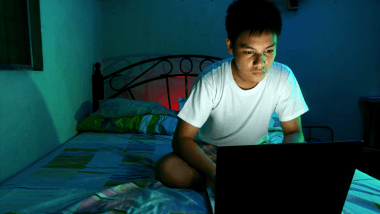The Government has provoked anger and astonishment after proposing legislation that would remove age-verification checks to protect children from pornography online.
The safeguards, set out in the Digital Economy Act 2017 but never implemented, would be removed under the new Online Safety Bill.
The original protections required mandatory age-verification checks to be included on all commercial pornography websites, with those which failed to comply to be hit with fines.
Social media
The Bill will instead target social media, where children are most likely to stumble upon pornography. Commercial websites will not be covered automatically, as new checks will only apply to websites with user-generated content.
Under the proposals, companies hosting user-generated content, video-sharing or live-streaming will need to prove to an independent regulator they can stop children accessing harmful content.
A spokeswoman for the Department of Digital, Culture, Media and Sport claimed the new law will go “further than the Digital Economy Act”.
‘Astonished’
However, campaigners have disputed this, suggesting that the new law would leave children with fewer protections.
John Carr, Secretary of the Children’s Charities’ Coalition on Internet Safety, said he was “completely astonished” when he saw the proposals.
He explained that all the largest commercial pornography websites would not be covered by the Bill, “or could easily put themselves outside of the scope of the Bill”.
Culture Secretary Oliver Dowden claimed most pornographic websites would be within the scope of the Bill, but said he was open to making changes, saying if there is a proportionate way of providing wider protections for children, then “there is a strong case for doing that”.
Unpalatable
But Sir Peter Wanless, Chief Executive of the NSPCC, accused the Government of putting the sensibilities of pornography websites above child safety, saying the Bill has the potential to be “transformative”, but only “if they choose to make it work for children and families, not just what’s palatable to tech firms”.
He added: “Unless Government stands firm on their promise to put child safety front and centre of the Bill, children will continue to be exposed to harm and sexual abuse in their everyday lives which could have been avoided.”
In its analysis of Government proposals, the NSPCC said that while targeting social media presents some advantages, the scope of the legislation “has erroneously excluded many commercial pornography sites”.
Delays
Baroness Floella Benjamin, who has repeatedly called for more safeguards to protect children from online pornography, said that, while she hopes the Government will toughen up the rules when it reviews the legislation, the delay in implementation is a concern.
She said: “The elephant in the room is what happens to protect children over the next three to four years”, adding that “a seven-year-old will be a teenager before this new law comes into force”.
Miriam Cates MP also raised concerns about the delays, saying the original protections contained in the Digital Economy Act should be implemented immediately to protect as many children as possible until new safeguards in the Online Safety Bill can be introduced.
Heartbroken
Last month, Lady Benjamin said that it broke her heart when the Government decided to abandon age verification checks in October 2019.
In a letter to The Times, she wrote that attempting to tackle sexual violence by children while violent pornography remains readily available online is like treating “cocaine addicts while supplying them with cocaine”.
Dad takes legal action to protect sons from porn
Floella Benjamin blasts lack of porn age-verification as study reveals ‘shocking’ online content


